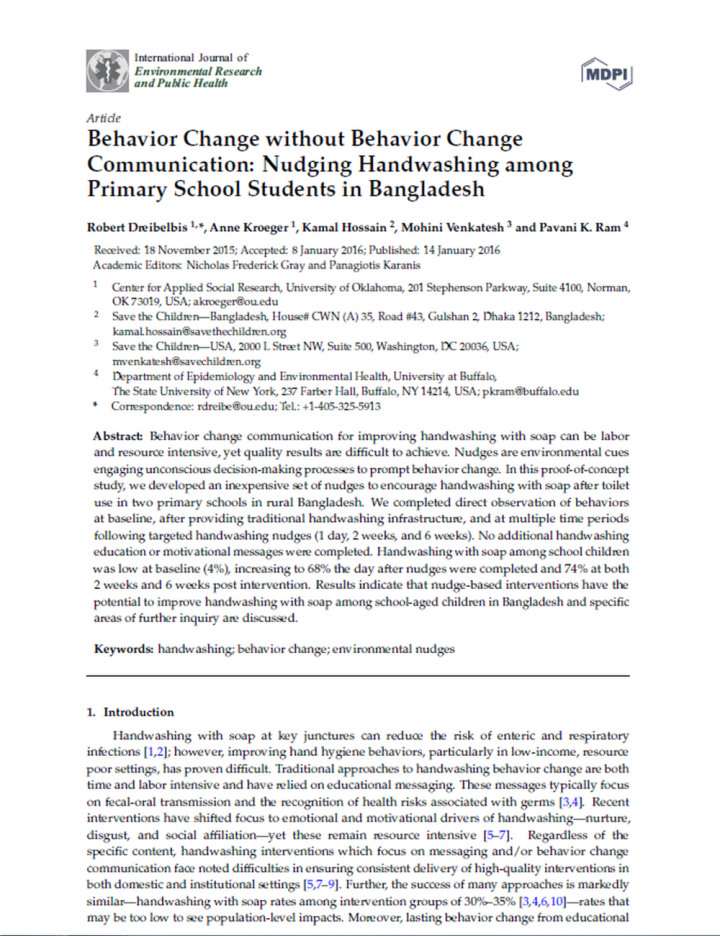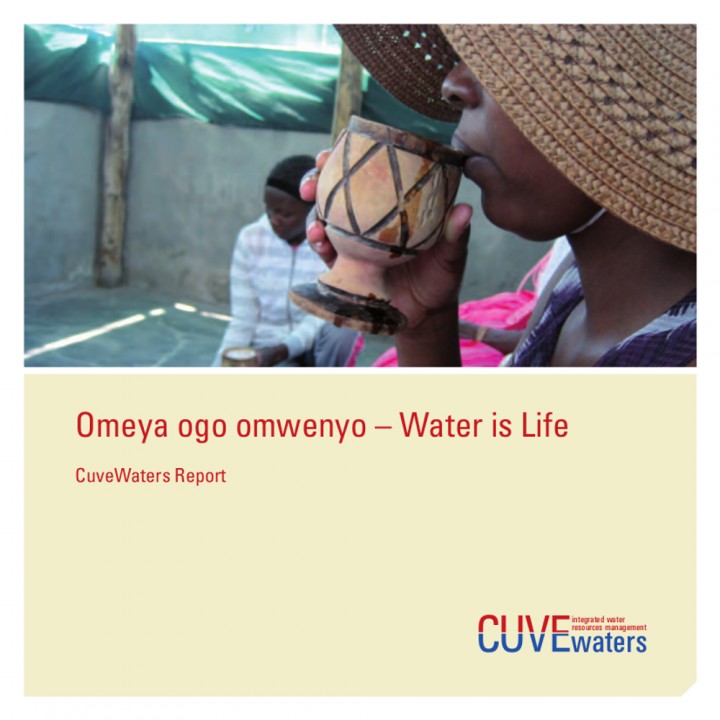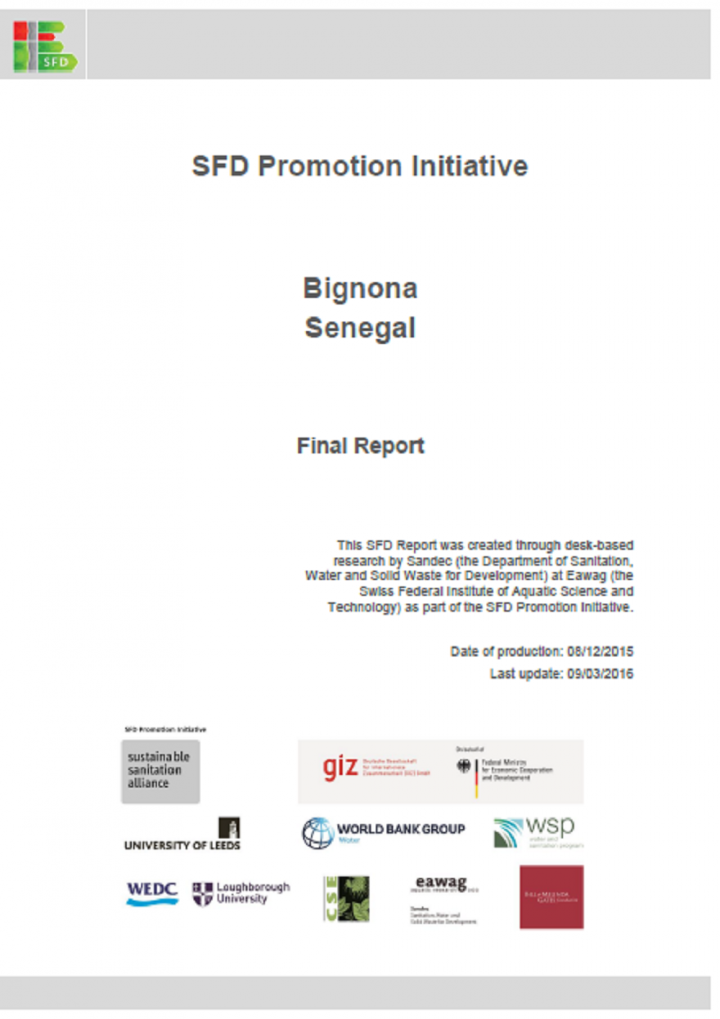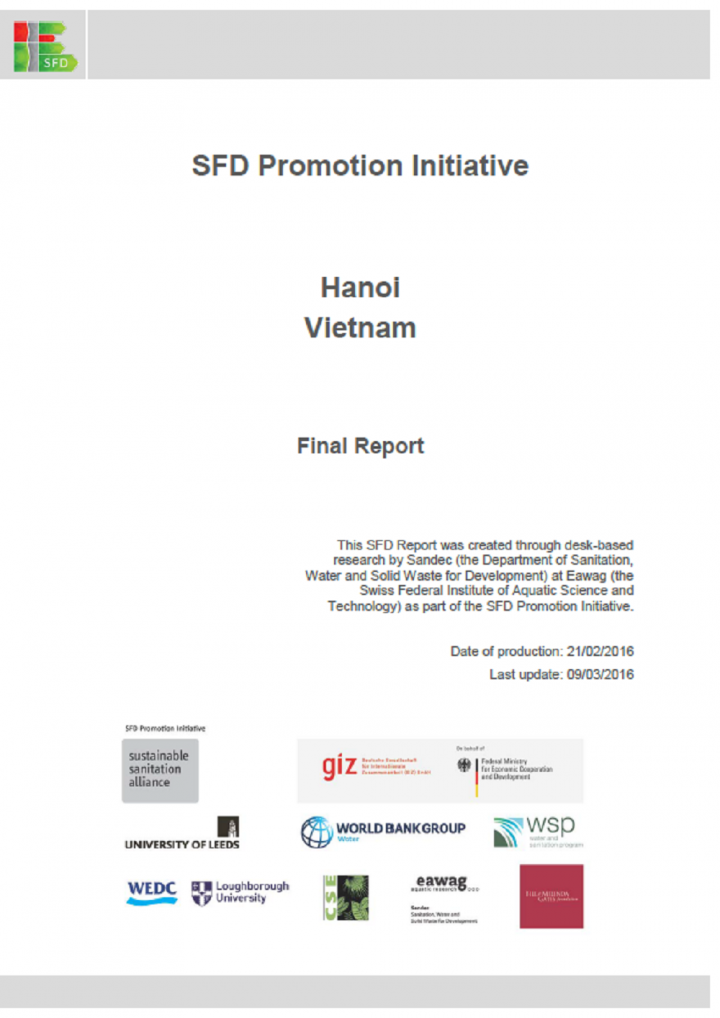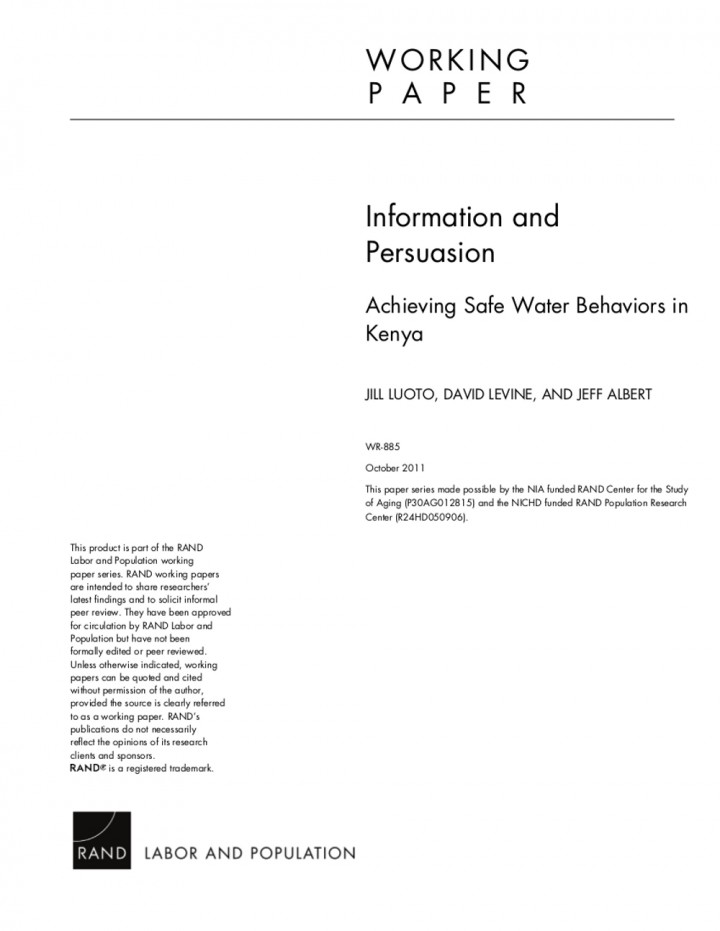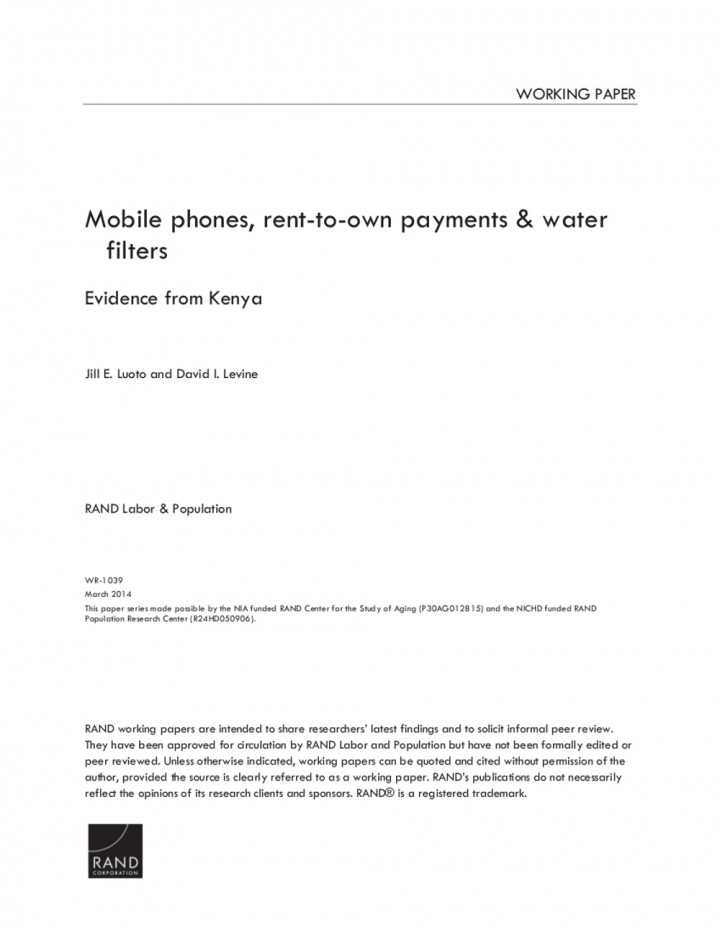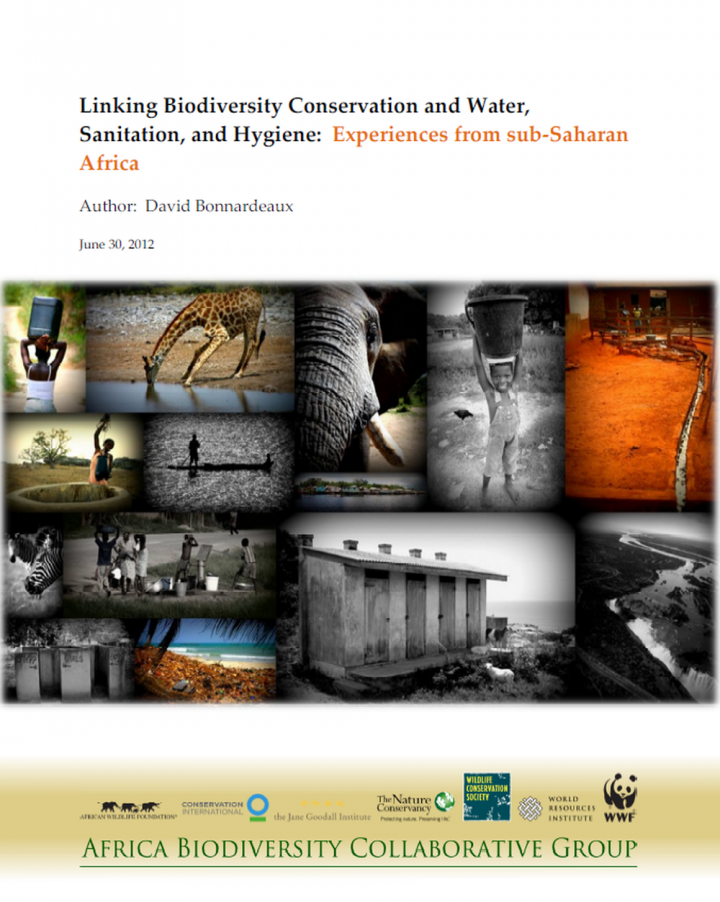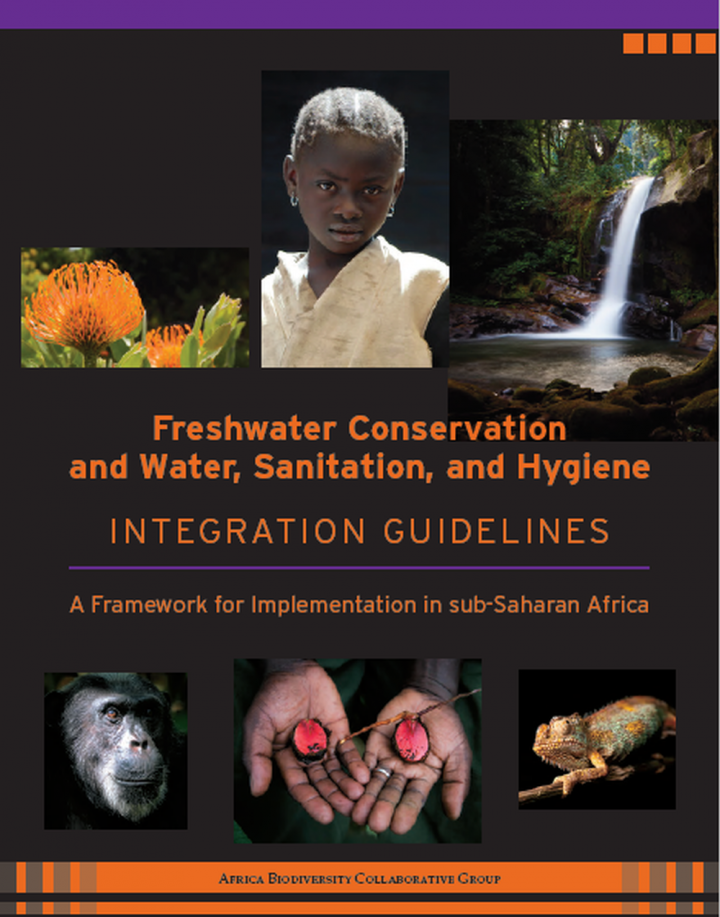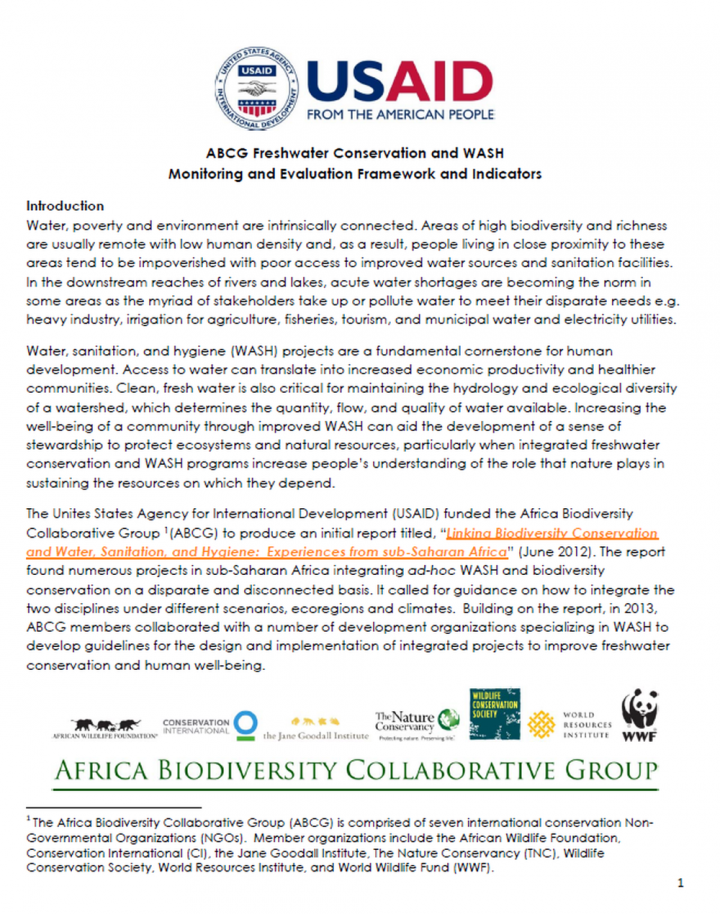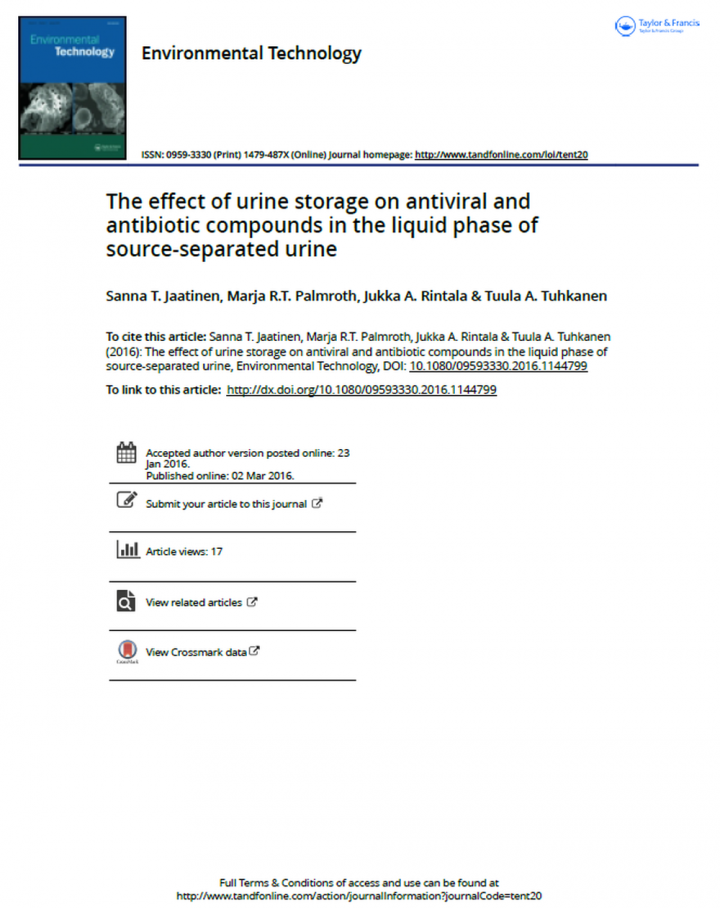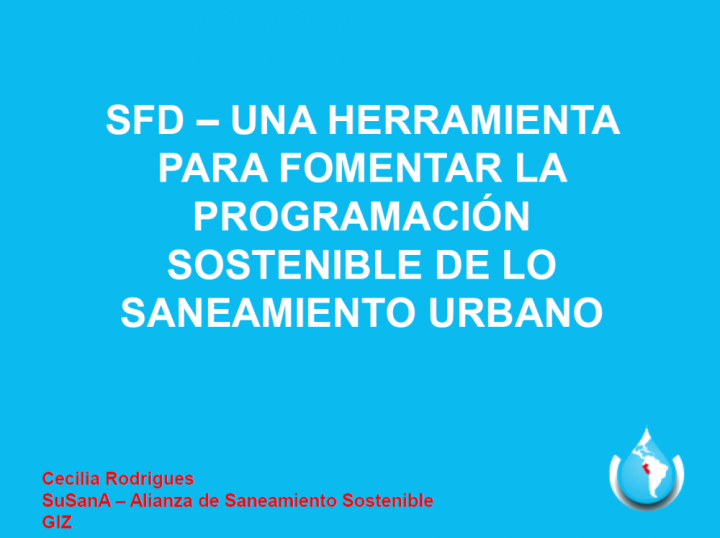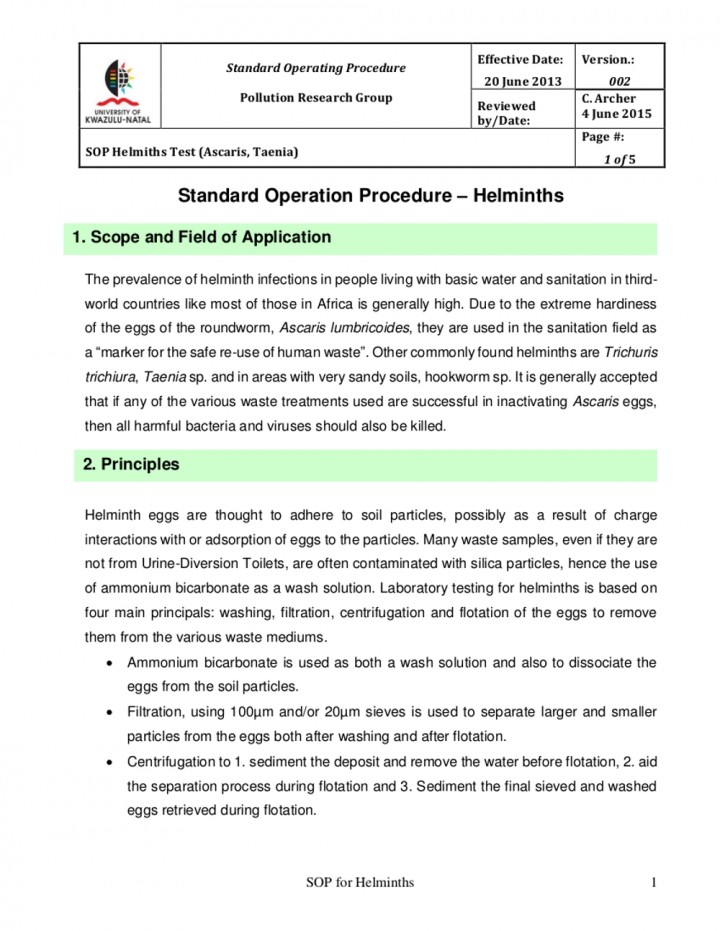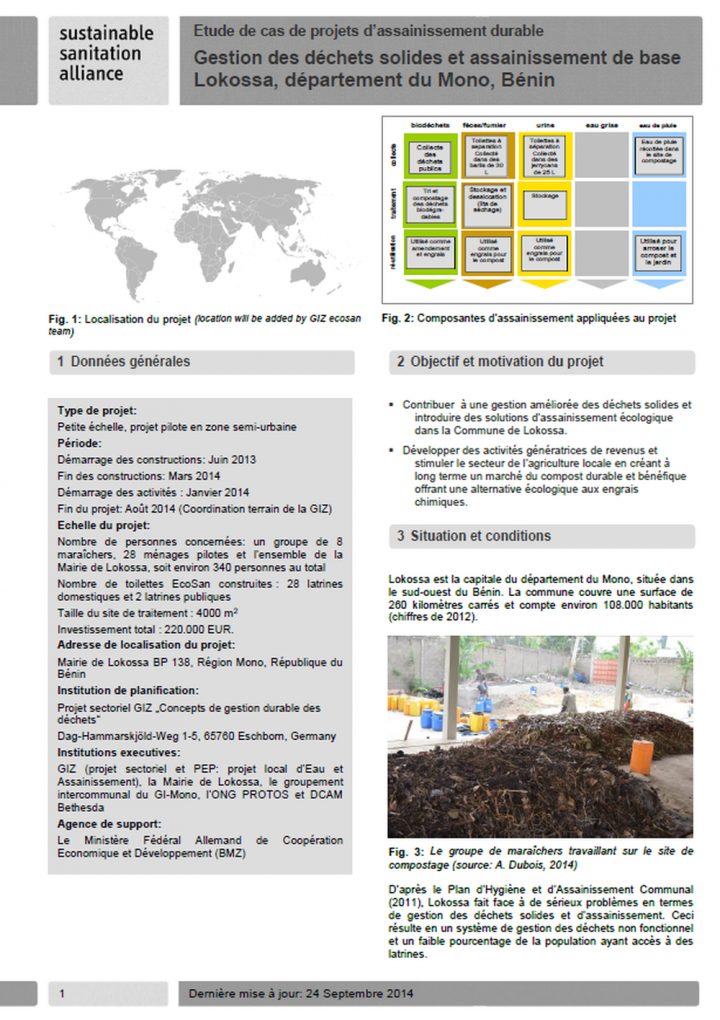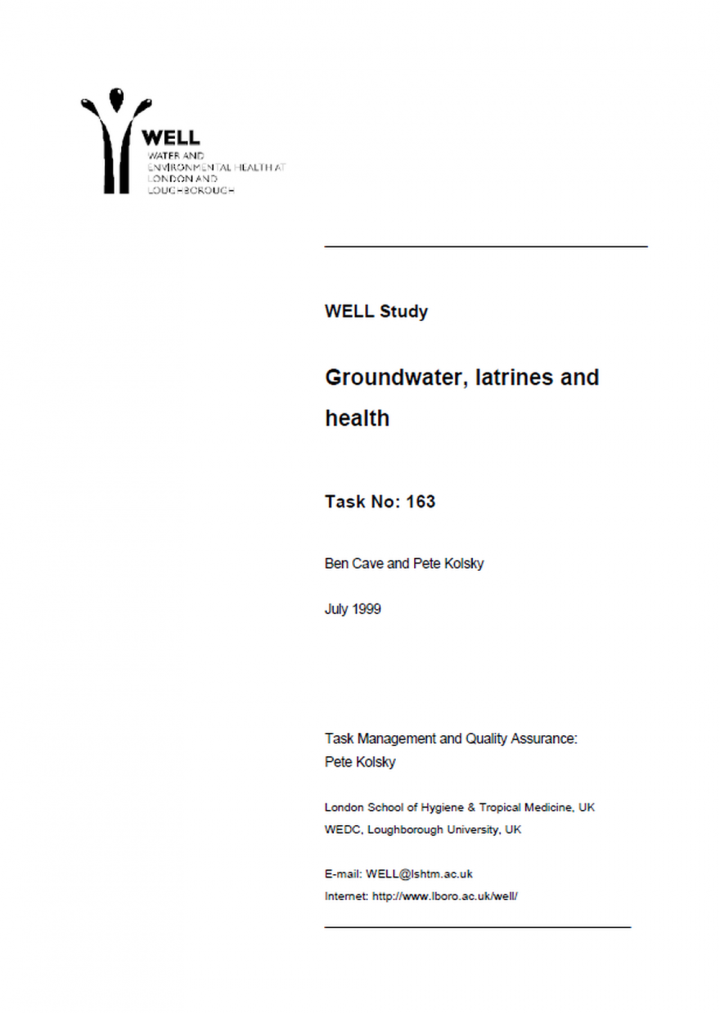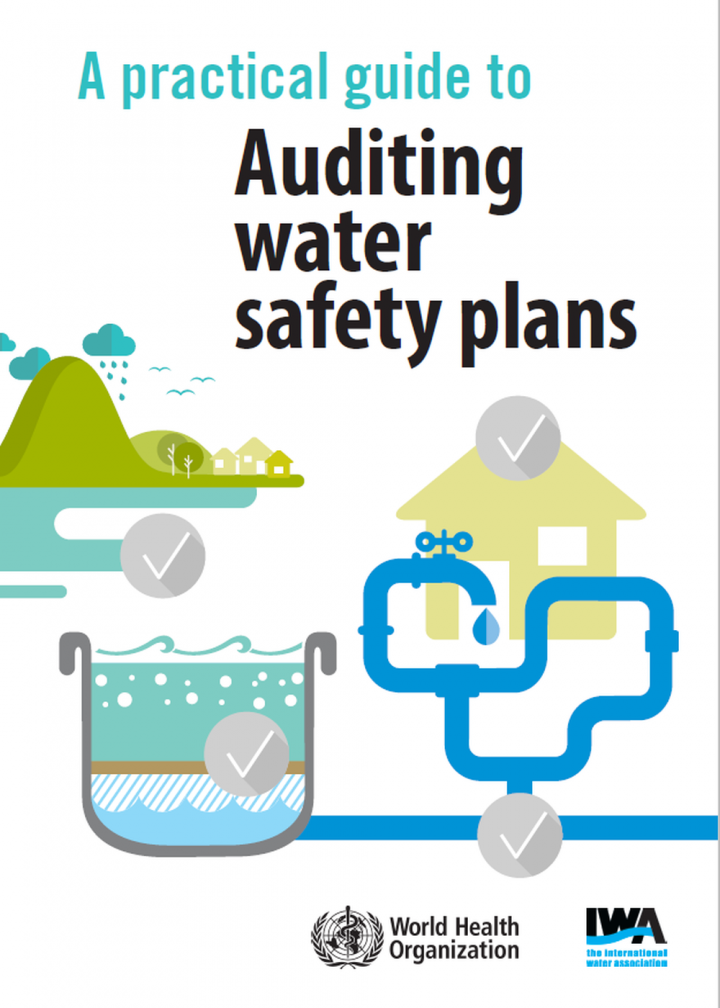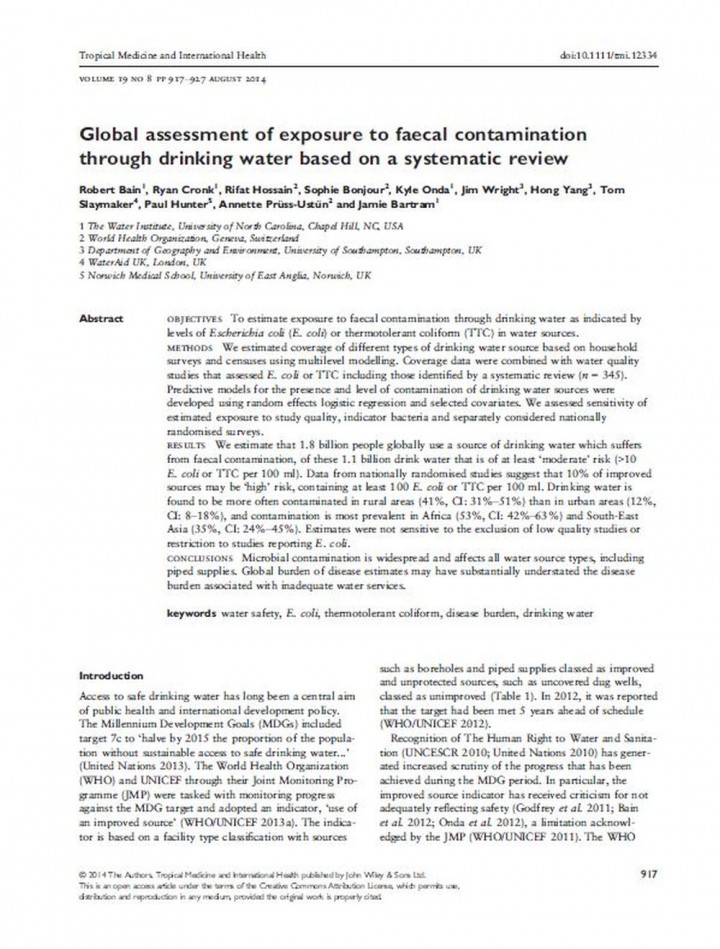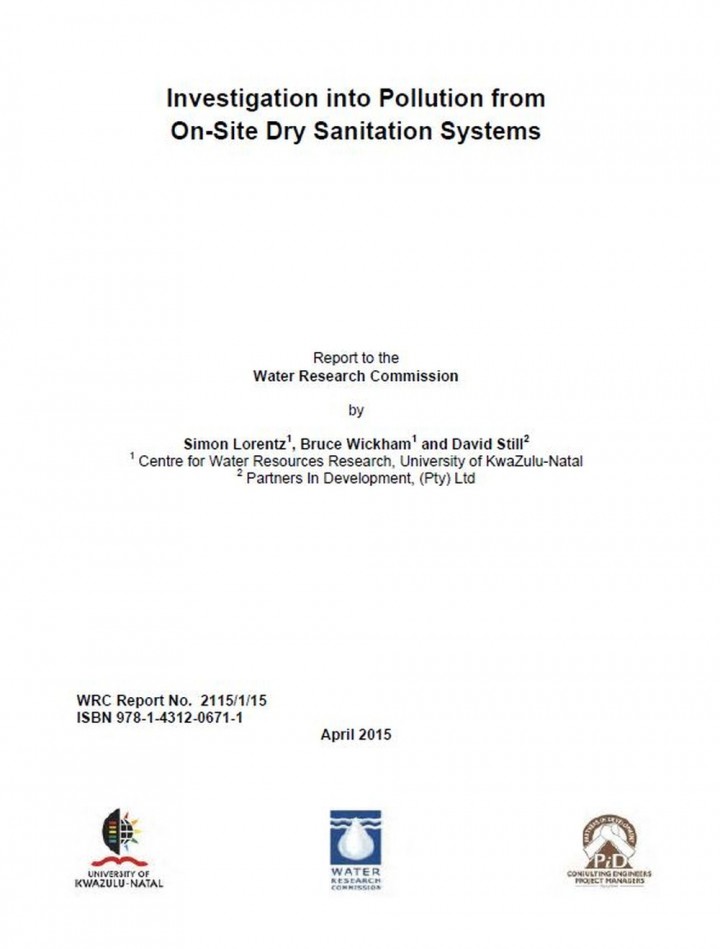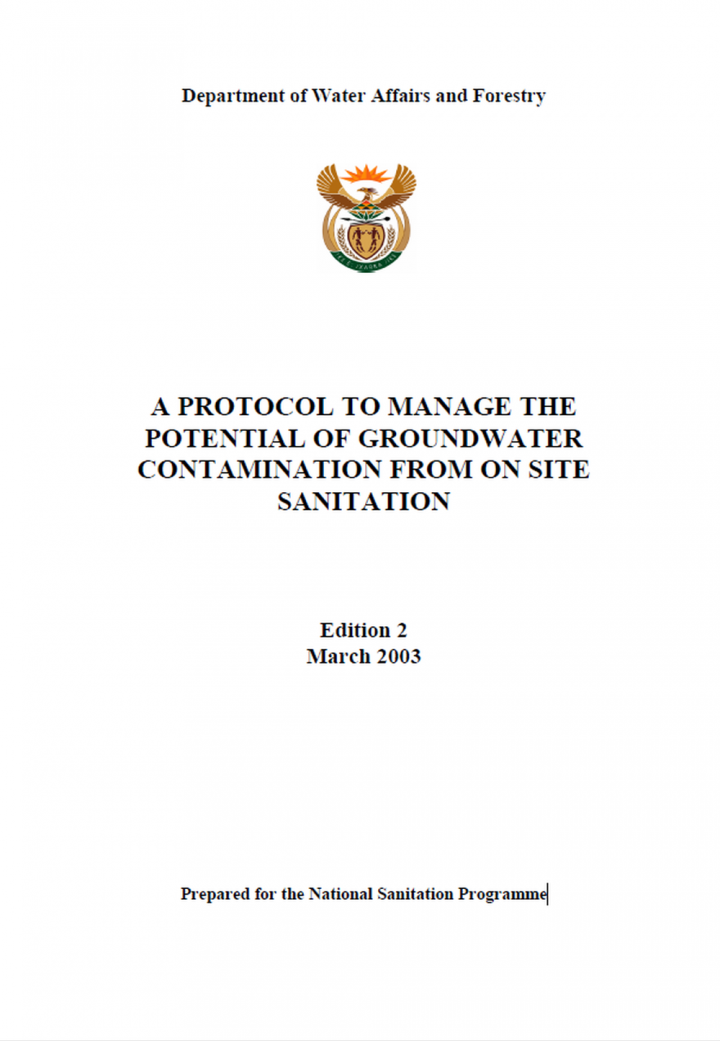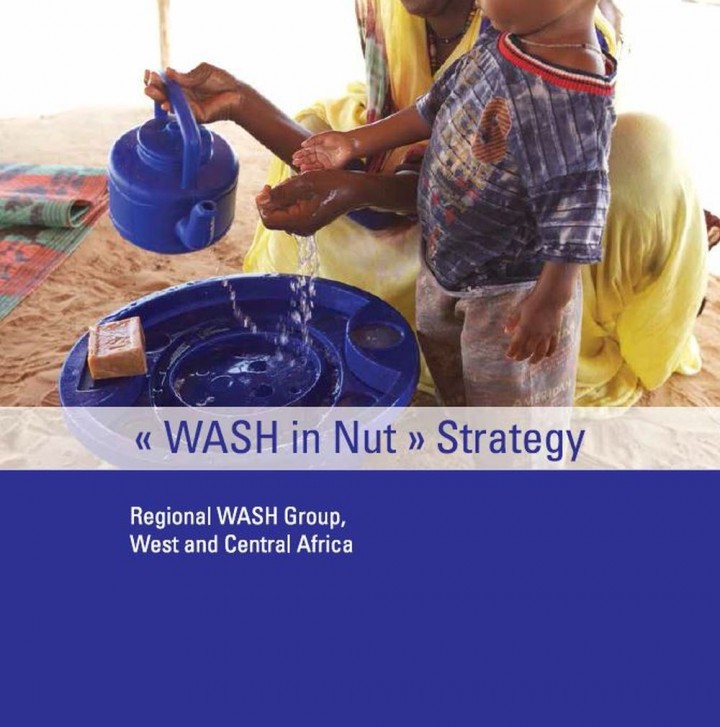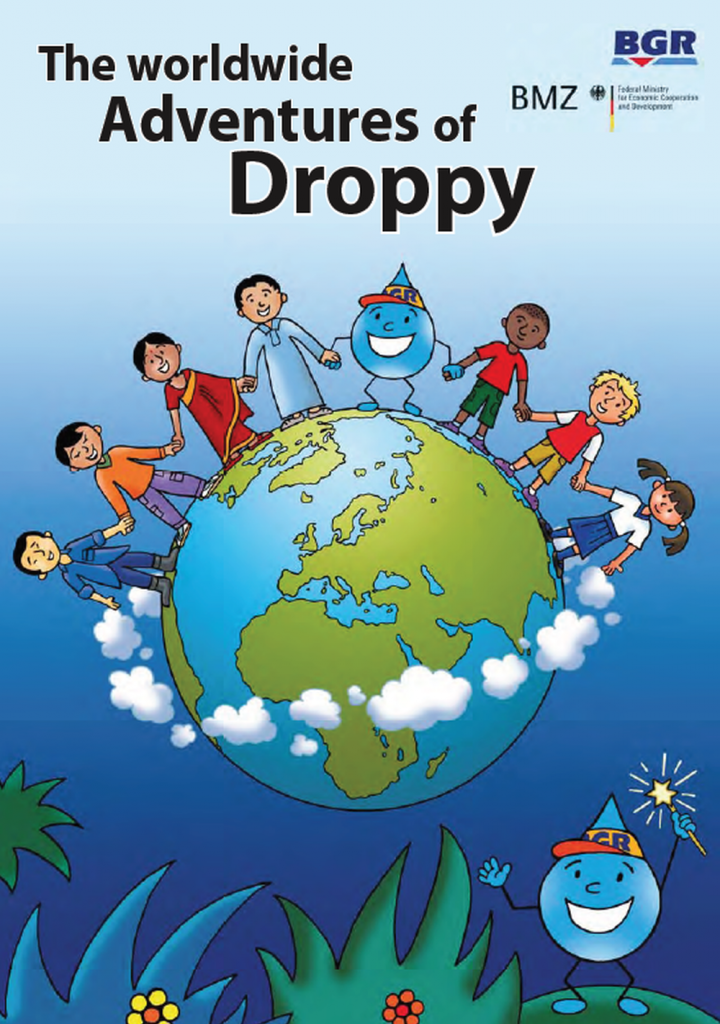Dreibelbis, R. et al. (2016) Behavior change without behavior change communication: Nudging handwashing among primary school students in Bangladesh
Behavior change communication for improving handwashing with soap can be labor and resource intensive, yet quality results are difficult to achieve. Nudges are environmental cues engaging unconscious decision-making processes to prompt behavior change. In this proof-of-concept study, we developed an inexpensive set of nudges to encourage handwashing with soap after toilet use in two primary schools in rural Bangladesh. We completed direct observation of behaviors […]
Various authors (2015) Water is life – Omeya ogo omwenyo CuveWaters report
The Cuvelai-Etosha Basin in Namibia is home to approximately 850,000 people – almost half the country’s population. They all need good and healthy water for their daily life, for farming and for sanitation purposes. The Namibian Ministry of Agriculture, Water and Forestry, together with the Institute for Social-Ecological Research and the Technical […]
Ndounla, J., Schoebitz, L. Sonko, E.M., Strande, L. (2015) SFD Report - Bignona, Senegal SFD Promotion Initiative
Bignona and Tenghory Trans-Gambian are in the region of Casamance, Senegal. The study area is comprised of seven districts (six in Bignona, one is the neighboring district ofTenghory Trans-Gambian in the municipality of Tenghory). These seven districts have a total area of 10.5 km². The population sums up to 44,783 with an annual population growth rate of 2.7%. The average population density is 4,300 people […]
Brandes, K., Schoebitz, L., Nguyen, V.-A., Strande, L. (2016) SFD Report - Hanoi, Vietnam SFD Promotion Initiative
Hanoi, the capital of Vietnam, is located in the Northern part of the country in the Red river delta. The urban districts cover an area of 304 km² with an estimated population of 3,147,000 inhabitants. Half of the districts have population densities above 20,000 inhabitants per km² while the other half below 10,000 inhabitants per km². This illustrates the variation between dense urban districts in […]
Luoto, J. E., Levine, D. I., Albert, J. (2011) Information and persuasion - Achieving safe water behaviors in Kenya
Convincing people to adopt preventive health behaviors consistently is difficult, yet many lives could be saved if we understood better how to do so. For example, low-cost point-of-use (POU) technologies such as chlorine and filters can substantially reduce diarrheal disease (Clasen et al. 2006). Nonetheless, they are not widely or consistently used anywhere in the developing world, even when widely available. The authors ran a […]
Luoto, J. E., Levine, D. I. (2014) Mobile phones, rent-to-own payments and water filters - Evidence from Kenya
Uptake of safe water products remains low, in spite of modest cost. We experimented with a sales offer that combined a free trial and rent-to-own payments for durable filters. Purchase rates doubled under this sales offer to 31% compared to a traditional lump-sum sales contract. To lower transaction costs we collected payments using Kenya's vast mobile banking network, MPESA. Mobile repayment rates were low; many […]
Bonnardeaux, D. (2012) Linking biodiversity conservation and water, sanitation, and hygiene: Experiences from sub-Saharan Africa
This white paper is an evidence-based review of how implementers have integrated Water, Sanitation and Hygiene (WASH) and freshwater ecosystem conservation to date in sub-Saharan Africa (SSA). The report takes stock of a selection of experiences from projects taking a more holistic approach to conservation and development.
Edmond, J. et al. (2013) Freshwater conservation and water, sanitation and hygiene integration guidelines: A framework for implementation in sub-Saharan Africa
Recognizing the need to better link freshwater conservation and WASH initiatives, the US Agency for International Development Bureau for Africa-supported Africa Biodiversity Collaborative Group (ABCG) and its member organizations produced guidelines for integrated programming in sub-Saharan Africa. The purpose of this document is to provide guidance health, development and conservation professionals in sub-Saharan Africa on how to plan, coordinate, develop and achieve mutually supported WASH […]
ABCG (2014) ABCG freshwater conservation and WASH monitoring and evaluation framework and indicators Draft
The purpose of this monitoring and evaluation framework is to assess the outcomes of integrated water, sanitation and hygiene (WASH) and freshwater conservation projects.
Jaatinen, S. T., Palmrotha, M.R.T., Rintalaa, J.A., Tuhkanen, T.A. (2016) The effect of urine storage on antiviral and antibiotic compounds in the liquid phase of source-separated urine
The behaviour of pharmaceuticals related to the human immunodeficiency virus treatment was studied in the liquid phase of source-separated urine during six-month storage at 20°C. Six months is the recommended time for hygienization and use of urine as fertilizer. Compounds were spiked in urine as concentrations calculated to appear in urine. Assays were performed with separate compounds and as therapeutic groups of antivirals, antibiotics and […]
Carvalho Rodrigues, M. C. (2016) SFD – una herramienta para fomentar la programación sostenible del saneamiento urbano (in Spanish) SFD - a tool to promote sustainable urban sanitation programs
Presentación para LATINOSAN: Conferencia Latinoamericana de Saneamiento Contenido: •Introducción SuSanA •Antecedentes en saneamiento urbano •Introducción del enfoque SFDs •La metodología y herramientas •Experiencias con los SFDs •Perspectivas futuras
Dubois, A. (2014) Case study of sustainable sanitation projects: Combined solid waste management and basic sanitation in Lokossa, Mono region, Benin (in French)
Type de projet: Petite échelle, projet pilote en zone semi-urbaine Période: Démarrage des constructions: Juin 2013 Fin des constructions: Mars 2014 Démarrage des activités : Janvier 2014 Fin du projet: Août 2014 (Coordination terrain de la GIZ) Objectif et motivation du projet: -Contribuer à une gestion améliorée des déchets solides et introduire des solutions d’assainissement écologique dans la Commune de Lokossa. - Développer des activités génératrices de revenus et stimuler le secteur […]
Cave, B., Kolsky, P. (1999) Groundwater, latrines and health
On-site sanitation systems dispose of human excreta, with or without treatment, on the residents' housing plot. Examples include pit latrines and septic tanks with drainage fields. This study reviews the risks to health posed by groundwater contamination from on-site sanitation (particularly latrines). Detailed understanding of groundwater contamination is complicated by a host of factors, broadly grouped into substantial and often unknown variations in subsurface conditions, […]
Drury, D., Rinehold, A. (2015) A practical guide to auditing water safety plans
The water safety plan (WSP) approach is widely recognized as the most reliable and effective way to consistently manage drinking-water supplies to safeguard public health. Since the introduction of WSPs in the third edition of the WHO Guidelines for Drinking-water Quality (GDWQ) and the International Water Association (IWA) Bonn Charter for Safe Drinking Water in 2004, a significant number of water suppliers have implemented WSPs […]
Bain, R. et al. (2014) Global assessment of exposure to faecal contamination through drinking water based on a systematic review
Objectives: To estimate exposure to faecal contamination through drinking water as indicated by levels of Escherichia coli (E. coli) or thermotolerant coliform (TTC) in water sources. Methods: We estimated coverage of different types of drinking water source based on household surveys and censuses using multilevel modelling. Coverage data were combined with water Quality studies that assessed E. coli or TTC including those identified by a systematic review (n […]
Lorentz, S., Wickham, B., Still, D. (2015) Investigation into pollution from on-site dry sanitation systems
The impact of onsite sanitation on water resources has been the subject of much study with regard to conventional septic tanks and soak-aways. However, research of impacts from rural and peri-urban communities using pit latrines, particularly in underdeveloped countries, has been unconvincing. With the increase in the extension of sanitation services provided by the South African Government anticipated to result in the establishment of some […]
Regional WASH Group, West and Central Africa (2015) WASH in Nut Strategy
This regional strategy was developed in 2012 during the nutritional and food crisis in the Sahel. It was updated in 2015. Revised during the 2014 consultation process, it remains an intersectoral guidance strategy that can be adapted to the specific national and local features of each country. French Version: http://www.susana.org/en/resources/library/details/2297
Schubert, T. et al. (2012) The worldwide adventures of Droppy
This comic introduces children to water and the environment. The little waterdrop called "Droppy" gets itself into adventures which give the reader an indea of the water cycle, wasting water, water pollution and others. It gives special attention to groundwater. Although these stories are happening in different cultural regions in this comic, these are problems which are happening daily in many parts of our world. We […]
